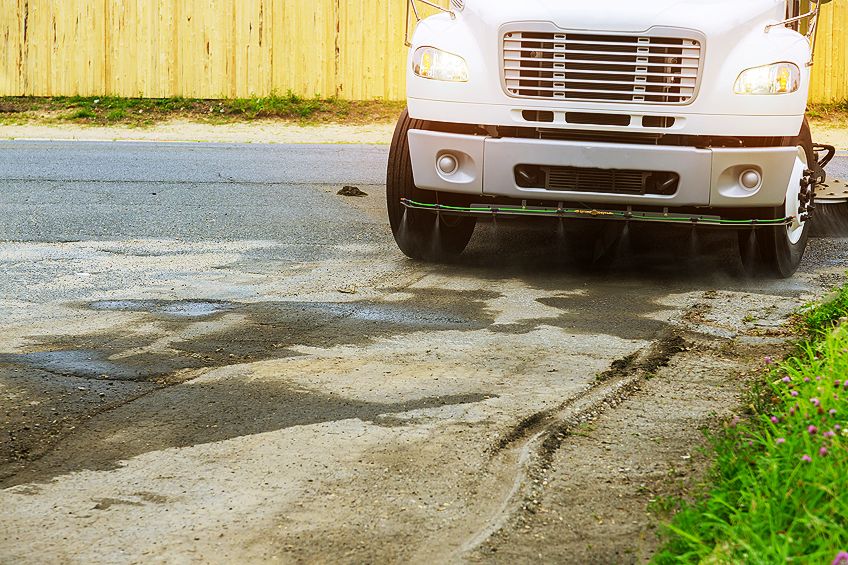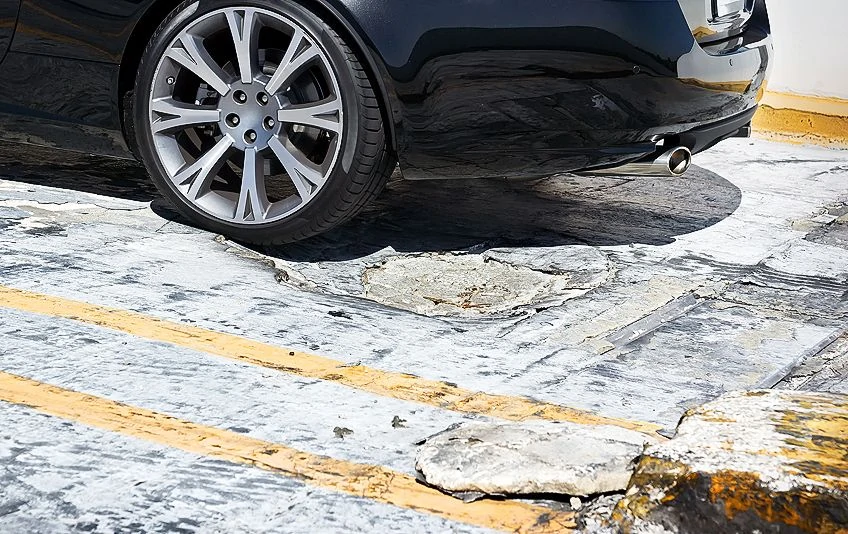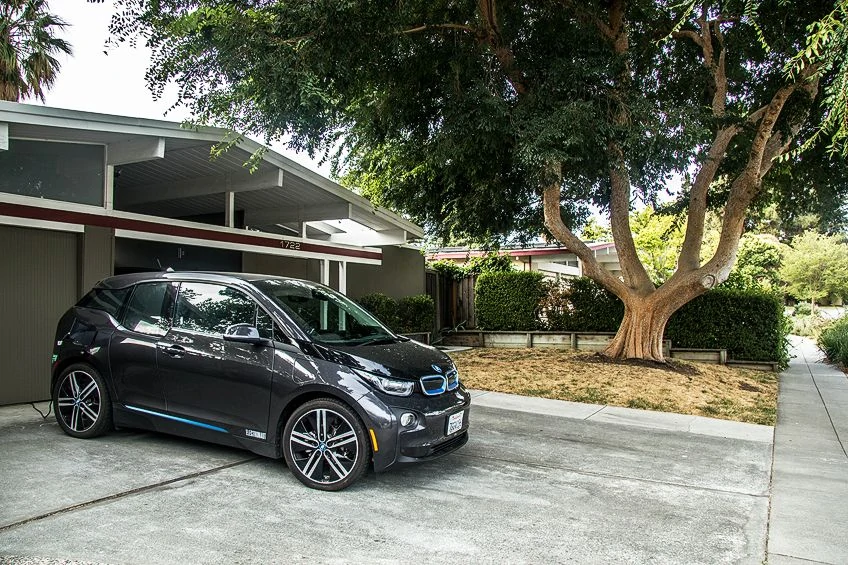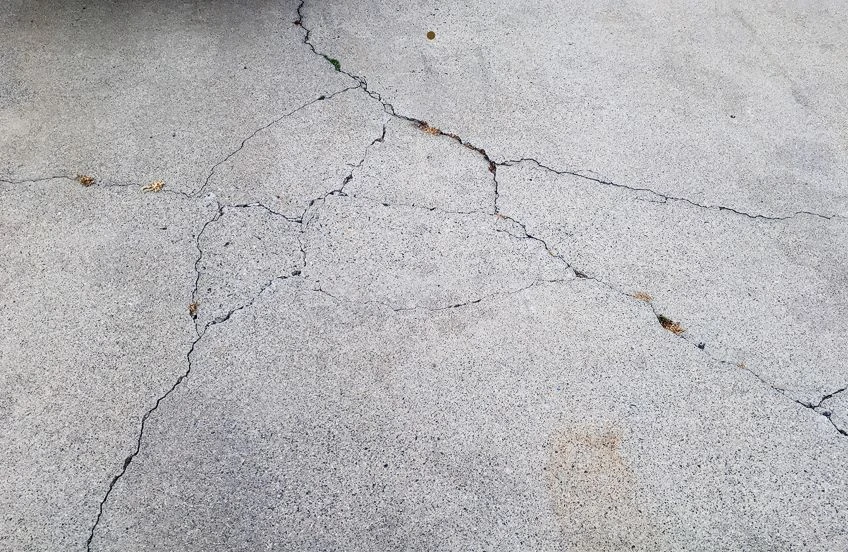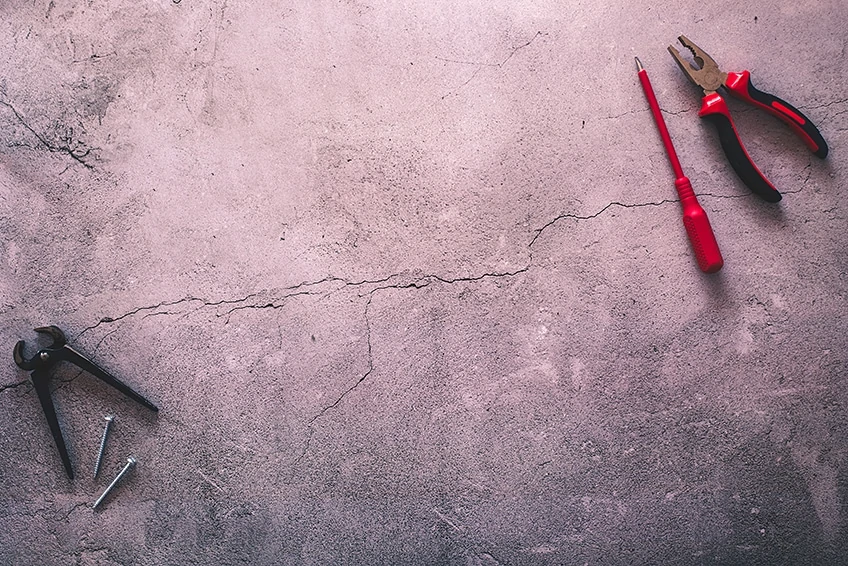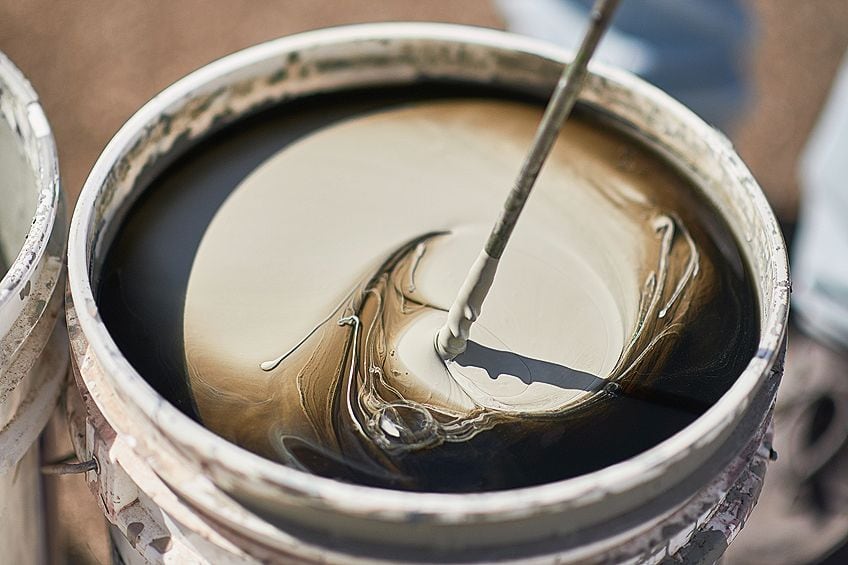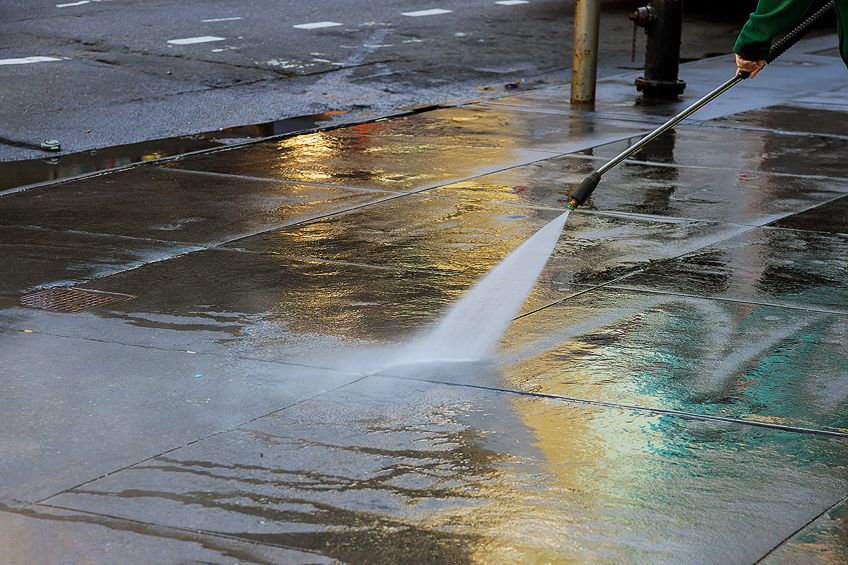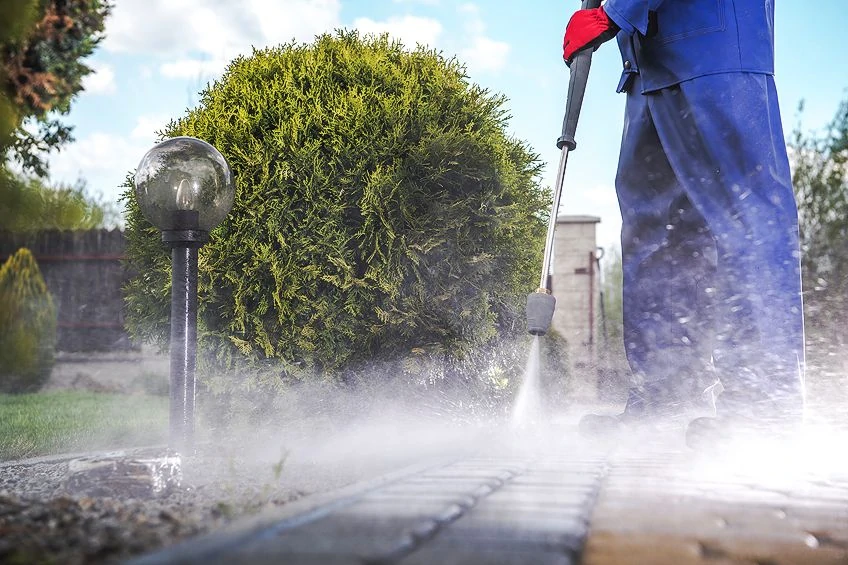Best Driveway Sealer – The Top Concrete and Asphalt Sealer Reviews
This post may contain affiliate links. We may earn a small commission from purchases made through them, at no additional cost to you. You help to support resin-expert.com
With all the choices available it might be difficult to decide on what sealer to buy for your asphalt or concrete driveway. The best driveway sealer depends largely on your budget, the type and condition of your driveway as well as the finish you are looking for. This article aims to help you decide what driveway sealer will best suit your pocket as well as your aesthetic taste and specific needs.
Table of Contents
Concrete and Asphalt Driveways
Both concrete and asphalt are made from gravel or sand and stone. The difference between these two materials lies in how these ingredients are bonded together. The adhesive in asphalt is a petroleum-based substance called bitumen, whereas cement is the binding agent in concrete. When these materials dry they provide a hard-wearing surface which is used in the building of roads and driveways. Whether you have a concrete driveway or an asphalt driveway they will both benefit from a sealer.
But what is a driveway sealer and why is it necessary to seal your driveway?
What Is a Driveway Sealer and Why do I need it?
Whether your driveway is concrete or asphalt, sealing your driveway is essential for prolonging its life by protecting it from the UV rays, chemicals, and oil stains, as well as the freezing and thawing during winter months. The UV rays of the sun can cause major damage over time as concrete and asphalt are not naturally UV resistant. However, there are plenty of UV stabilized sealers on the market that will protect your driveway for years to come.
Sealing your driveway also makes it far easier to clean which is great for maintaining curb appeal. Preventative maintenance is cheaper in the long run as it can save you from having to do expensive repairs or having to resurface the entire driveway. A driveway sealer does what the name suggests, it seals off the surface from the elements but there are also specialty sealers available.
Types of Driveway Sealers
An expertly built driveway can hold its own against the elements, but over time they can start to degrade. Web-like cracks can form as well as low spots and if neglected these can lead to potholes which can end up costing you money in the long run. Driveways can also be susceptible to mold, especially in humid regions. This is why selecting the correct driveway sealer for your specific needs is imperative. Here is a brief list of the different types of driveway sealers:
- Coal tar sealers
- Asphalt sealers
- Acrylic sealers
- Oil-based sealers
- Fill-and-seal sealers
- Mold inhibiting sealers
- Expoxy sealers
- Linseed oil-based sealers
Coal Tar Sealers
Coal tar is a coal derivative that is a black and syrup-like liquid that is easy to apply. It is very effective in filling existing cracks and the coating can last a long time. It stands up well to oil and gasoline stains and resists fading due to sun exposure.
The downfall of coal tar sealers is that it is not ideal for DIY application and is toxic to the environment. Instead of expanding and contracting it is likely to crack in extreme weather as it is not very flexible. It also contains toxic chemicals and because of this has been banned in certain states and cities.
Asphalt Sealers
True to its name asphalt sealer contains a lot of the same materials as asphalt itself. Like coal tar sealers asphalt sealers are easy to apply and last a long time. It can be more expensive than a coal tar sealer but is far more eco-friendly. Once cured asphalt sealer has some flexibility so it will crack as easily as coal tar sealers.
Asphalt sealers penetrate deep into the existing asphalt and best of all it is DIY friendly as no heating equipment is needed for application as is the case with coal tar sealers.
Acrylic Sealers
Acrylic sealers are environmentally friendly and come in an array of colors and finishes. It is an ideal driveway sealer but it can be expensive. Most acrylic sealers are UV stabilized and hold up well to temperature fluctuations and harsh environments. Even though it is expensive they last a long time which will save you money in the long run.
Oil-Based Sealers
Unlike Acrylic sealers, oil-based sealers penetrate the surface of the asphalt and last a lot longer before having to reapply. However, oil-based sealers are not environmentally friendly. These sealers do not protect the asphalt from UV rays and are less effective in resisting oil and petroleum stains.
Fill-and-Seal Sealers
These types of asphalt sealers contain sand or silica particles that fill in small existing cracks and seal the asphalt at the same type. Fill-and-seal type sealers are ideal for cracked asphalt but they will not work on large cracks or potholes. This sort of damage needs to be patched before moving onto sealing.
Mold Inhibiting Sealers
Mold, mildew, lichen, moss, and algae can ruin the look of your asphalt or concrete driveway. Mold inhibiting sealers are best for warm, humid climates where fungi and algae thrive. If your driveway is prone to mold or algae, it is best to remove all the mold or algae and clean your driveway thoroughly before applying a mold inhibiting sealer.
Epoxy Sealers
Epoxy sealers are very hard to wear and much more durable than acrylic sealers. Epoxy sealers are easy to clean but do not penetrate the surface like asphalt sealers. Like acrylic sealer different colors are available.
Epoxy sealers usually cost more than acrylic sealers, the finish can be slippery and they are not as breathable as acrylic sealers.
Linseed Oil-Based Sealers
This is an early method of sealing asphalt driveways and it is a great alternative to other driveway sealers that may have negative effects on the environment. This option can be quite effective in preserving the asphalt and concrete driveways. Linseed oil-based driveway sealer is one of the safest options as there are no harmful fumes and is easy to mix up yourself.
Why Is it Important to Use a Breathable Driveway Sealer for Concrete?
A vapor permeable or breathable driveway sealer may seem counterintuitive. However, when it comes to concrete driveway sealers, vapor permeability is a must. A breathable concrete sealer may slow down the movement of water and vapor through the surface of the concrete but should not stop it completely.
Over time, a non-breathable concrete sealer could cause delamination as well as the degradation of the concrete itself. It is not only rain you have to consider but the water content of the earth below your driveway sealer which is in constant flux, even if you live in a dry area. Most concrete driveway sealers available are breathable, so do not be concerned if the water seems to absorb slowly into the surface of your sealed driveway, as it is not only normal but ideal.
Our Top Recommendations for the Best Driveway Sealer
With the expansive range of different types of sealers that are available, you may be feeling spoiled for choice or struggling to find the right sealer for the job. We have selected a few products that come highly recommended and we have aimed to present them in a way that will help you select the right sealer for your needs.
Whether your driveway is concrete or asphalt, newly built, or showing signs of wear, there is a driveway sealer just for you.
The Best Sealer for Asphalt Driveways: JETCOAT Driveway Sealer
Jetcoat driveway sealer is made of an advanced gel formula. It is the best sealer on the market for asphalt driveways and comes with a 10-year warranty. Jet coat driveway sealer not only enhances the look of your driveway and protects it but provides a non-slip finish and comes in a 5-gallon pail that covers up to 350 sq ft. depending on how porous your driveway is.
- Fortified with sand for added filling, slip resistance, and extended durability
- Use this extra-strength driveway filler on all types of asphalt surfaces
- This sealant comes ready to fill and seal any blacktop surface quickly
- Ideal for quick asphalt maintenance
- Ready to use
- Easy application
- Fills small cracks
- Long-lasting
- Can be applied to a damp driveway
- Can cause skin and eye irritation
- Not ideal for concrete driveways
Best Fill-and-Seal Driveway Sealer: EZ Stir Driveway Asphalt Sealer
EZ Stir Driveway sealer is an ideal 2-in-1 option for filling cracks and sealing your driveway at the same time. EZ Stir dries to the touch in 4 hours and the 5-gallon pail can cover up to 500 sq. ft. This driveway sealer is designed to give you better traction and durability for a long time.
- Can be easily used as a filler and sealer coat for blacktop pavements
- Reinforced formula for improved traction and extended durability
- Covers 250-500 sq. ft. per 5-gallon pail, depending on surface texture
- 2-in-1 fill and seal formula
- Value for money
- Quick-drying time
- 4 year warranty
- Improves traction and durability
- Take a long time to cure
- Not ideal for concrete driveways
Best Premium Concrete Driveway Sealer: FOUNDATION Armour Concrete Sealer
Foundation Armour SX5000 is a solvent-based concrete and masonry sealer. SX5000 is approved by the department of transportation, does not change the natural look of your driveway, and can last up to 10 years. SX5000 does not require any heavy equipment to apply, no toxic fumes, and clean up is easy with soap and water.
- Solvent-based, breathable, low VOC, high solids Silane Siloxane sealer
- Will maintain the natural, unsealed look and feel of the substrate
- Easy to apply the two back-to-back coats with a pump sprayer!
- Long-lasting
- Easy clean-up
- Easy to apply
- Low toxicity
- Non-slip finish
- Versatile
- Expensive
- Will not work on asphalt
Best Value for Money Concrete Driveway Sealer: RAIN GUARD Water Sealer
Rain Guard water sealer is a highly recommended concrete driveway sealer that can be applied using a brush, roller, or sprayer. It is UV stabilized which resists sun damage and does not yellow over time. Rain Guard driveway sealer does not alter the appearance of your driveway and does not leave any surface film.
- Prevents surface damage from rain, snow, ice for up to five years
- Does not alter the surface appearance, or leave a surface film
- Contains advanced UV stabilizers ensuring long-lasting performance
- Follows state environmental guidelines
- Easy to apply
- UV Stabilized
- 5 year satisfaction Guarantee
- Covers up to 1000 sq. ft.
- Does not affect surface appearance
- Not recommended for use on asphalt driveways
- No finish options
Best Eco-friendly Concrete Sealer: ECO ADVANCE Concrete Siloxane Waterproofer
Eco Advance is a trusted brand whose products are environmentally friendly. Their Concrete & masonry waterproofer not only repels water but also protects against oil stains, mold and mildew as well de-icing salts. It is safe to use around children, animals, and plants and is vapor permeable.
- Commercial-grade waterproofer can be applied with a garden pump sprayer
- Eco-friendly, low VOC, low odor formula is safe to walk on in less than 2 hours
- Vapor permeable waterproofer can be used on new concrete and masonry
- Non-toxic
- Non-flammable
- Water-based
- Covers up to 1200 sq ft.
- Protects concrete as well as brick, and stone
- Vapor permeable
- Requires garden pump sprayer
- Not ideal for asphalt driveways
How to Seal Your Driveway, a Step-by-Step Guide
Before we get right to applying the driveway sealer preparation is key. If your driveway is in very bad condition you need to look at patching up potholes and filling in large cracks before you move on to sealing.
Allow crack filler and patched areas to fully cure before moving on to sealing your driveway. If your driveway is in fair condition you can proceed with the steps below. What follows is a general guideline that will be a great supplement to the instructions that came with the driveway sealer that you have selected.
What do You Need to Seal Your Driveway?
The great thing about sealing your driveway is that it is DIY friendly as it requires no special expertise or heavy machinery. With a few household items and some sealer, you will be well on your way to sealing your driveway.
- Garden hose and water supply
- Stiff-bristles brush or broom
- Long-handled brush, roller, or squeegee (Depends on the type of sealer)
- Painters tape
- Plastic sheeting
- Rubber boots or old shoes
- Gloves and old clothes
- Driveway sealer
- Leaf blower (Optional)
- Power washer (Optional)
- Weedwhacker (Optional)
- Drill and paint mixing attachment (Optional)
Step One: Planning
Check the weather forecast to make sure it is an ideal time to seal your driveway. The ideal temperature for sealing your drive is above 10 °F. Avoid attempting to seal your driveway on extremely hot days as the sealer could start drying before you are finished applying the first coat of sealer. Not to mention working in the heat can be extremely uncomfortable.
The sealer will need at least 48 hours to cure properly so make sure there is no rain forecast for the following few days.
Step Two: Remove Debris
Begin by removing all debris from the surface of the driveway. This includes overhanging grass as well as weeds that may have sprouted inside small cracks. You may have to do this using your hands unless you have a weed whacker handy. Use a leaf blower or a broom to get rid of the bits of grass and weeds.
Step Three: Power Wash
Pressure washing is a great way to remove stubborn bits of debris and dirt. Alternatively, you can use a garden hose and a stiff-bristled brush. You may also need to use a detergent or degreaser if you have any oil spots or grease stains. Dirt and moisture will prevent the sealer from bonding to your driveway. Once thoroughly washed, rinse thoroughly and allow the driveway to dry before moving onto the next step.
Step Four: Mask and Mix
Use painter’s tape to mask off any areas that you do not want to get sealer onto, for example where the driveway meets the wall or garage floor. Lay plastic sheeting on the area where you wish to mix the sealer to protect from spills as even spills on your driveway can show through after sealing. Mix the sealer using a paddle. Be sure to mix the sealer thoroughly. A paint mixing attachment for a drill will be a lot easier and save you some time.
Step Six: Cutting In
Cutting in is a phrase used for painting the corners and edges first before moving onto the larger areas. Use your paintbrush or small roller to apply the sealer to these areas. Make sure to not apply too thinly. The aim is to saturate the pores of the driveway.
After you have cut in the cover and edges of your driveway it is time to move onto the rest of the driveway.
Step Seven: Pour and Spread the Sealer
Plan to start from one end of the driveway working your way across to completion. If you are a thin sealer on concrete you may want to use a tray and roller for the job. If you are using a thick asphalt sealer, a squeegee or a push broom may be better suited. Always refer to the driveway sealer manufacturer’s instructions before proceeding with sealing your driveway.
Pour the sealer in a line across one end of the driveway and use the squeegee or broom to work the sealer into the asphalt while spreading it around. Proceed to move backward as you work until you reach the other side of the driveway. If you are using a roller, roll the sealer from your tray onto the driveway, working the sealer into the driveway while spreading it around.
Step Eight: Finishing it Off
Once you have coated your drive completely in the driveway sealer, place the sealer pails at the entrance of the driveway to prevent people from driving onto it before it has cured. You will want to keep people from walking on the surface, a little construction tape around the perimeter should do the trick. You may need to apply another coat the following day.
It is best to wait at least 48 hours before you use the driveway as normal.
Our Tips and Tricks to Help You Seal Your Driveway Successfully
If this is your first time sealing your driveway on your own, you may need some extra tips and tricks to make the process as smooth as possible. Here are some of our tried and tested tips to make it easy for you to seal and protect your driveway.
- If you are looking for a natural look, it is best to select a driveway sealer with no-gloss or matte look. Matte finishes are ideal as they tend to be less slippery.
- If you are mixing the sealer with a drill and paint mixing attachment, cut a small hole in the top of the pail of the sealer just big enough to allow the attachment through. Mixing this way can prevent accidental spills.
- When sealing your driveway wear shoes and clothes that you do not completely mind ruining. Sealer is bound to get on your clothes as well as on your shoes and it can be near impossible to clean or remove.
- If you are having difficulty removing weeds from in-between cracks in your driveway, try mixing up a solution of borax, white vinegar, and dish soap and spraying it onto the weeds. The following day the weeds should have died and will be a lot easier to pull out.
- The best time to seal your driveway is in the morning after the dew has evaporated. This will allow the driveway sealer the rest of the day to cure and it is a great way to avoid working in the heat of the day.
- If your asphalt driveway is newly built, you should wait about 6 months before you apply a sealer to your driveway. This will give it enough time to cure.
- Applying multiple coats will ensure maximum coverage as well as an even finish . This is subject to the consistency of your driveway sealer as well as the manufacturer’s instructions.
- Remember not to walk on the driveway for at least 8 hours after applying your sealer. Motor vehicles should be kept off the driveway for at least 24 hours.
It is easier than you think to seal your driveway yourself. With our recommendations, you now have the tools to choose the best sealer for your driveway, whether it is concrete or asphalt. You will also know all the best tips and tricks to make sealing your own driveway easier than ever!
Frequently asked Questions
Is It Possible to use Concrete Sealer on an Asphalt Driveway?
It is best to use a sealer that is specifically designed for the particular surface of your driveway. Using a concrete sealer on an asphalt driveway could accelerate the degradation of your asphalt. Using an asphalt sealer on your concrete driveway is not recommended either.
Can my Driveway be Wet when I Apply Driveway Sealer?
After washing your driveway It is best to wait for your driveway to dry completely for you to apply the sealer. Applying the sealer to a wet driveway could compromise the adhesion of the sealer and leave you with the sealer coming off prematurely. Some asphalt sealers recommend applying the sealer to a damp driveway. If you are unsure check the instructions or contact the manufacturer.
Can Rain Ruin My Fresh Driveway Sealer?
If your driveway sealer has not yet dried and you have a sudden downpour of rain then there is a good chance that all your hard work and expensive sealer will be washed away. Check the weather report and aim to seal your driveway in the dry months of the year. This will save you time, money, and stress.
How Often Should I Seal My Driveway?
Sealing your driveway will make it last longer especially if you select the best driveway sealer for the job. For the best results, It is recommended that you apply a sealer to your driveway every 3-4 years. This depends on the product you are using as well as the climate and the elements that your driveway is subject to.
What Happens if I neglect to Seal my Driveway?
You might be able to get away without sealing your driveway for several years. After some time you may not notice cracks and chips forming as the degradation is usually gradual. Before you know it you may be forced to fork out dollars for expensive repairs.
Are Asphalt and Blacktop the Same Thing?
Blacktop and asphalt are essentially the same things as they are both made up of bitumen, sand, and stone. The main difference between the two is that blacktop uses more sand and is applied at much higher temperatures than asphalt.
What can I do About Big Cracks and Potholes?
Seal & Fill products should be enough to repair cracks up to ¼”. If you have cracks and potholes larger than that, there are products on the market specifically designed for DIY driveway crack and pothole repair. Some of them do not require you to apply heat to them and they can be very effective.


